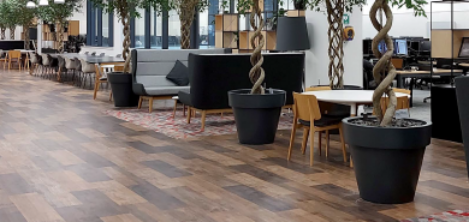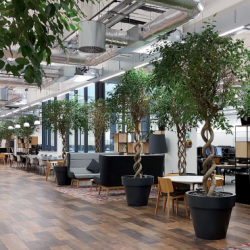April 21, 2023
Hybrid working is the new normal and is here to stay, report claimzzzz
 Mace has published a new report into workplace trends which claims that hybrid working with a collaborative central space is (brace yourselves) the new normal for a preferred post-pandemic working style. The Mace Operate Workplace Survey looked at the enduring role of a central office for businesses and considered what an office space needs to offer in an era of hybrid working. The majority of respondents (87 percent) said that interaction with people and workplace culture are the main benefits of going to the office with employees and employers seeing eye-to-eye on the need for collaboration for motivation, resilience and effective hybrid working. (more…)
Mace has published a new report into workplace trends which claims that hybrid working with a collaborative central space is (brace yourselves) the new normal for a preferred post-pandemic working style. The Mace Operate Workplace Survey looked at the enduring role of a central office for businesses and considered what an office space needs to offer in an era of hybrid working. The majority of respondents (87 percent) said that interaction with people and workplace culture are the main benefits of going to the office with employees and employers seeing eye-to-eye on the need for collaboration for motivation, resilience and effective hybrid working. (more…)




































